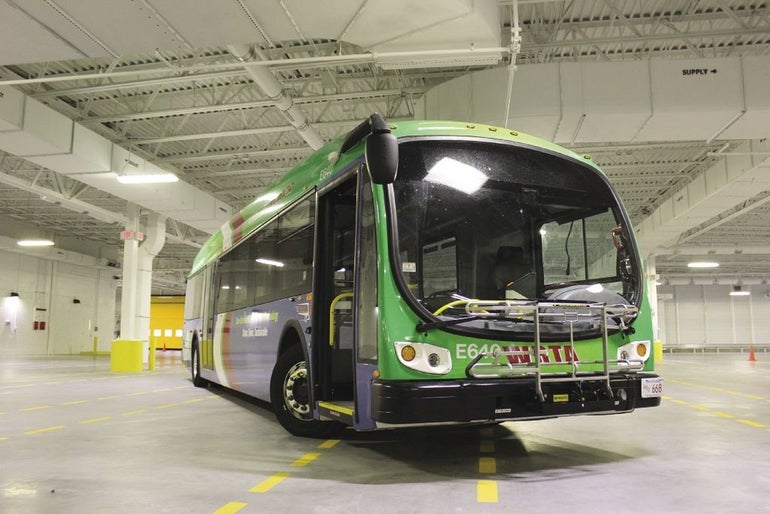Officials from the Worcester Regional Transit Authority have announced the transportation authority will not go fare-free this year.
The announcement was made by WRTA Administrator Dennis Lipka at Thursday’s WRTA Advisory Board meeting. It was made in response to the ongoing discussion spurred by a report from the Worcester Regional Research Bureau calling the WRTA a perfect candidate for a fare-free bus system.
The report calculated up to $3 million annual cost to provide free service could be made up through cost savings, increased governmental aid, and partnerships. Researchers found offering the service for free would reverse the system’s declining ridership.
In an interview with WBJ, Lipka said there are studies underway to delve into fare-free ridership, but the WRTA must not only find a reliable source to fill in the $3.5-million fare gap, but get other issues resolved before fare-free can be considered.
“We have a lot of things we need to do. We need to have a better scheduling system. We need to have a better website. We need to have better customer outreach,” said Lipka. “We’re at a crossroads where all the things that are happening in transit are focused on improving the transit for riders.
The two areas Lipka is focused on are understanding rider needs and a new fare collection system. There are two studies underway right now that will address those issues, and in doing so shed light on the fare-free option.
While Lipka made it clear fare-free is off the table for 2020, he kept the door open for some fare-free work in 2021.
“We are putting together the budget for 2021 now. We are going to try and put some money aside to do some experimentation with fare-free,” he said explaining certain bus routes are primed for fare-free use but warning “anything with fare-free is going to take a long time.”
Not only a long time, but any fare-free option will look much different than just hopping on a bus and not paying a fare, Lipka said. If a fully fare-free system were in place, there would need to be some sort of way to track ridership, such as through an I.D. card, in order to make use of and capitalize on user data.
“Even though the system may be fare-free, we are still going to need a system to count the passengers and see who they are and where they go,” he said.
Which, Lipka said, brings things back to the current studies underway to look at what routes users need and adding a new fare system that would remove cash from the buses. Once these studies have been completed, the potential for fare-free can be explored with more of the information needed, he said.

